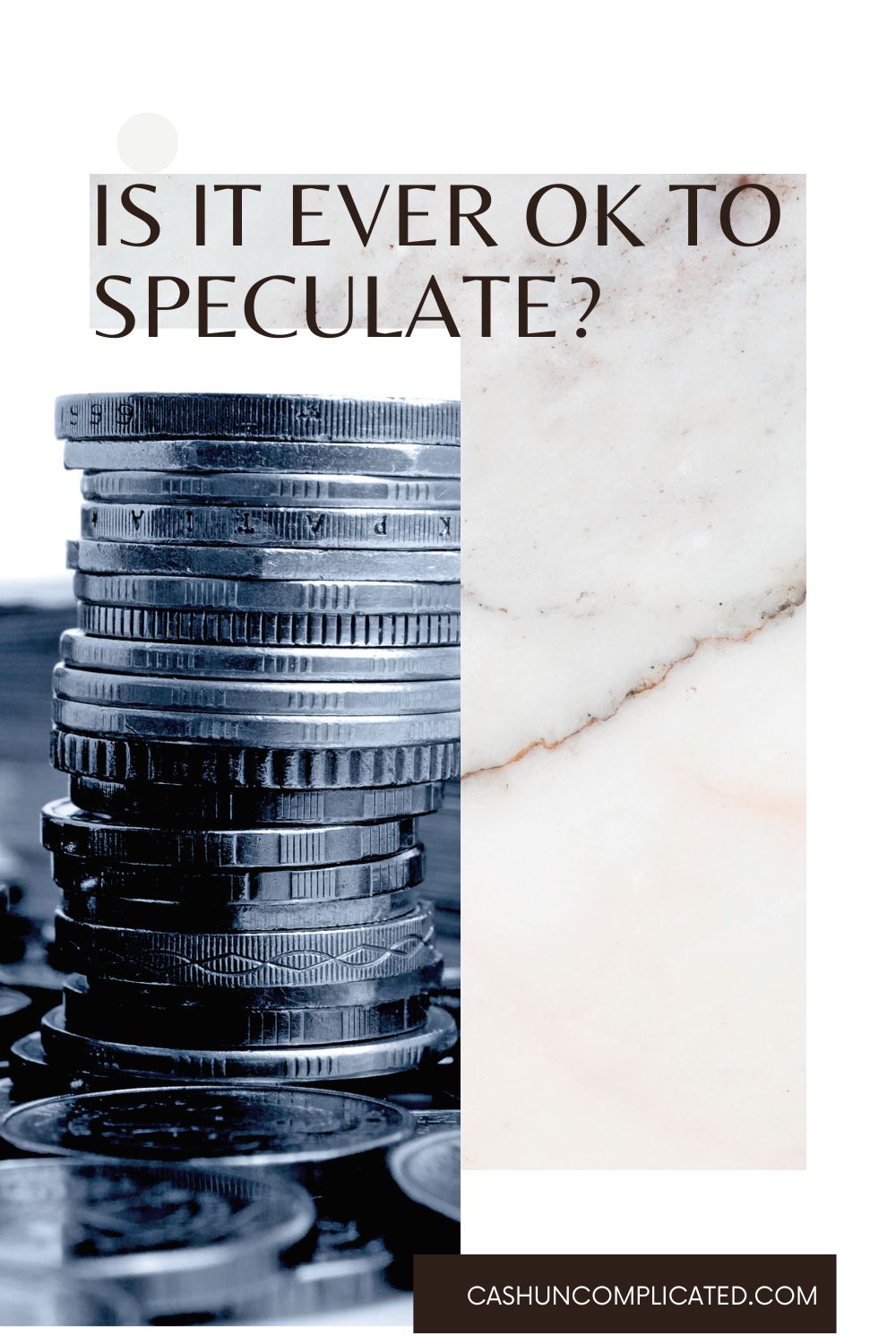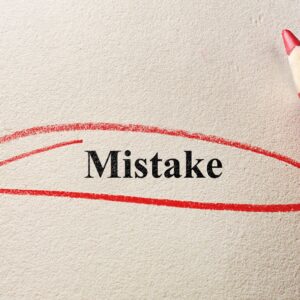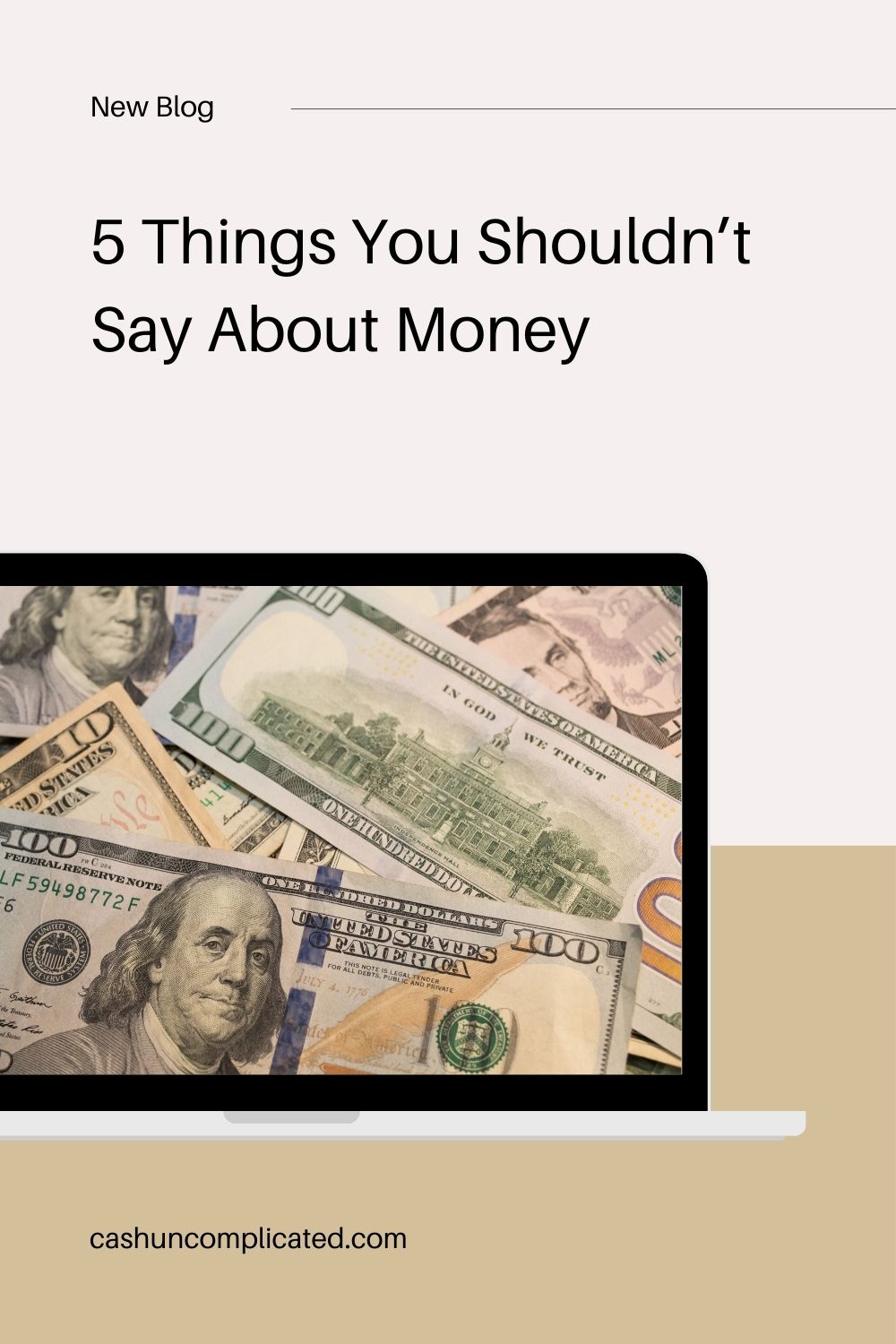There are a lot of speculation plays hitting big right now. Bitcoin is way up as are a bunch of other cryptocurrencies, including meme coins. Some are winning really big which brings up the question, is it ok to speculate?
What is Speculation?
Speculation is taking a big risk, usually in the short term. It’s picking an asset to go up in value and/or to produce a large amount of cashflow. Examples would be:
- A land deal in a part of town you think is going to go up in value
- Day trading
- Cryptocurrencies, especially meme coins
With speculation, there’s a chance of losing it all. And those losses can occur very quickly.
What’s the Difference Between Investing and Speculation?
Investing is putting money, time, energy, effort into an asset with a proven track record that is likely to appreciate and/or produce long-term cashflow. Examples such as:
- Buy and hold real estate
- Index funds
- Mutual funds and ETF’s
- Real estate syndications with a trusted sponsor
Investing often doesn’t give immediate returns, but over the course of several years does. For example, a single family home you’re renting out may not appreciate in the first few years but you’re getting cashflow, depreciation, loan paydown, along with the chance of appreciation. This combination makes real estate a very attractive investment for many people.
Another example is investing in an index fund tracking the S&P 500. You may have some down years but the average return is a little over 10 percent. Investors who keep their money in it for the long term usually do quite well.
While speculation is the quick and big wins where you’ve also got a good chance of going to zero. A meme cryptocurrency for example might be up 75 percent in one day and then go to zero within the month. Same for a land deal you buy in what you think is in the path of progress. If a neighboring town gets a big development deal, your land might be worth very little.
The Mistakes Many People Make
An error many people make is mistaking speculation for investing. Or understanding speculation, but putting too much of their net worth into a speculative deal. Let’s address mistaking speculation for investing first using a hypothetical situation.
Marcus is a good saver but doesn’t know what to do with his money. He’s heard he should put it in the stock market but he doesn’t really know what that means. He decides he’s going to pick a couple of well known stocks and put all his money into those.
He figures if they go up enough to give him a $5,000 profit he’ll pull it all out and try something new. After three months the value of his portfolio drops by $3,500 so he decides to pull the money out now before it goes down even more. A year later this portfolio would have been up 15 percent. Marcus did his best based on his current knowledge, but he is speculating rather than investing.
In our second hypothetical situation, Robbie has good intentions. He wants to invest and make the right decisions for himself and his family. His current net worth is $50,000. He sees that many cryptocurrencies are going through the roof so he decides to put $40,000 into a few different coins that have performed well recently.
$40,000 is 80 percent of his net worth. His plan is to wait a few months for prices to “go up again” and then pull it all out. Robbie understands that this strategy is a risky proposition but he decides to put 80 percent of his money into it anyway, knowing that he could lose a large portion or all of it.
Robbie is making the second mistake-speculating with too large a percentage of his income.
Is It Ever OK to Speculate?
This brings up the question, is it ever ok to speculate? You’re going to get different opinions on this, but my answer is yes if all these boxes are already checked. Those boxes are:
This brings up the question, is it ever ok to speculate? You’re going to get different opinions on this, but my answer is yes if all these boxes are already checked. Those boxes are:
- No consumer debt
- Fully funded emergency fund
- You’re already investing (not speculating) 20 percent or more of your income
- You are educated about what you’re speculating on
- The speculation is less than 10 percent of your net worth
Anyone wanting to speculate needs to have a solid foundation. Someone with $15,000 worth of consumer debt who is living paycheck to paycheck isn’t a good candidate to speculate on deals. Nor is the person barely making it with less than $500 in an emergency fund (or even $5,000).
It’s my belief that someone wanting to speculate also needs to already be investing at least 20 percent of their income. Preferably they also have a long track record of doing this and have a large nest egg built up.
The second to last bullet points are that you’re educated on what you’re speculating in. For example, if you’re investing in a tech stock, you should either have a background in the field or have a high level of formal or informal education about the industry and company.
Finally, I’m a believer that speculation should be less than 10 percent of your net worth. With that said, I’m not writing this blog for the billionaire or multi-millionaire with hundreds of millions of dollars. I’m writing this for myself and the rest of us. And I don’t think most people should be speculating with more than 10 percent of their net worth.
Conclusion: Your Choice
Whether to speculate or not is your choice. Some of the most important things are that you know what speculation is and you are allocating the appropriate amount of your portfolio to speculation.
A 30-year-old in a good financial position allocating five percent of her portfolio to speculative investments is much different than a 70-year old retiree speculating with 80 percent of his money. The first person is allocating a very small amount she can afford to lose while the older person is gambling with way too much of his money.
If you choose to speculate, make sure it works for your given situation. If it doesn’t, don’t do it and come back to it when you’re in a more favorable position.
Do you ever speculate?







